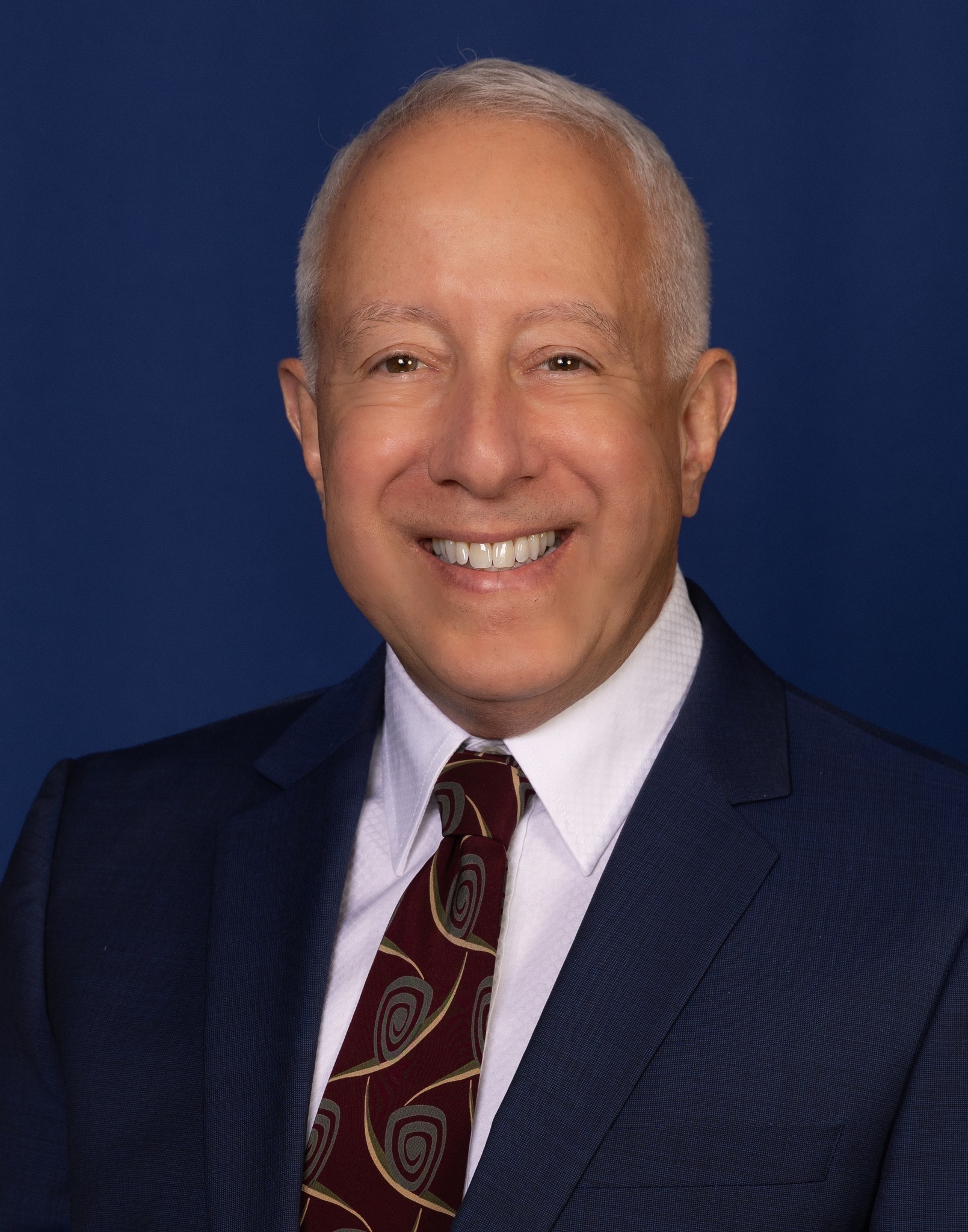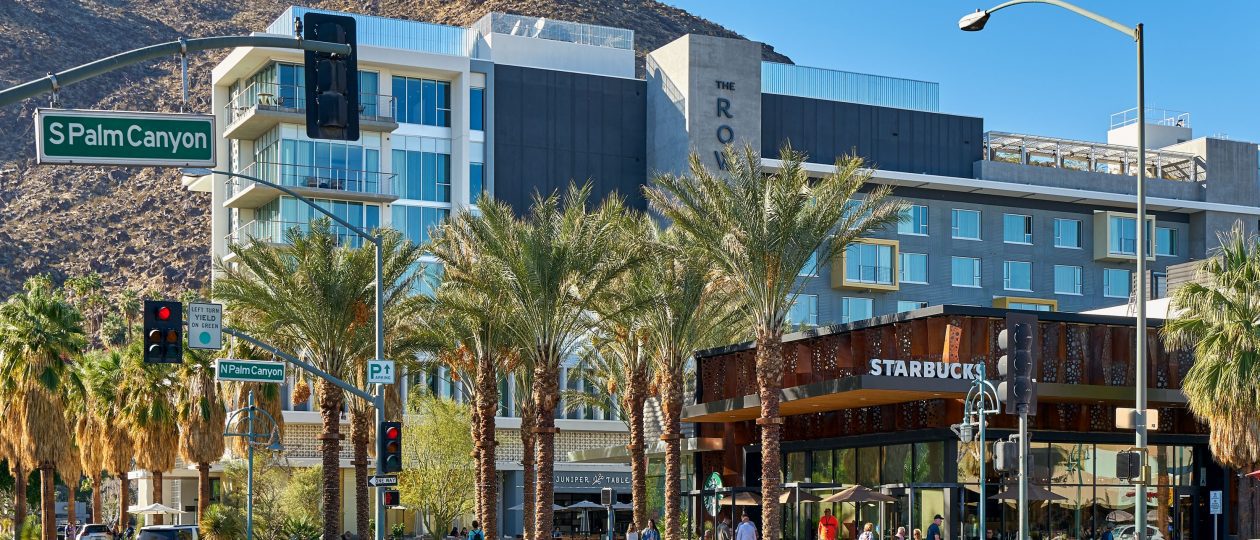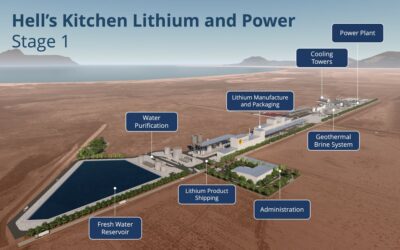In an era when cities nationwide struggle to maintain vital services and support long-term infrastructure maintenance and improvements, Palm Springs has found a reliable, major direct revenue source in Measure J. Since its passage by voters in 2011 and implementation in April 2012, this one-percent sales tax has generated more than $190 million, contributing significantly to the city’s budget and funding hundreds of critical projects.
The 2024 ballot initiative to extend Measure J is up for a vote on the November 5 City of Palm Springs election ballot. The Measure J initiative allows Palm Springs voters to extend the 1% sales tax indefinitely instead of ending in 2037 as enacted. City leaders and involved, high-profile residents, including Mayor Jeffrey Bernstein and community advocates such as long-time Palm Springs resident David Baron, chairman of the Yes on Measure J Committee, are urging residents to understand its profound importance and vote to keep it going.

Palm Springs Mayor Jeffrey Bernstein
A Cornerstone of Palm Springs’ Success
Mayor Jeffrey Bernstein, a staunch supporter of Measure J, has emphasized that the measure has been a “cornerstone of the city’s development and prosperity.” At a recent gathering of city residents, Bernstein highlighted how Measure J has played a pivotal role in maintaining the quality of life that Palm Springs residents enjoy today. “The funds generated have allowed us to invest in our infrastructure, public safety, and community services in ways that would not have been possible otherwise,” Bernstein noted.
At the meeting, Palm Springs Police Chief Andy Mills noted that his department achieved full staffing levels of sworn officers last fall after several years of a deficit in needed staffing, something many police departments throughout California have been unable to accomplish due to funding limitations and recruiting challenges. He attributed some of the success in sworn officer recruitment to the support of Measure J funding that enabled the department to increase the compensation of its officers, including hiring bonuses.
The passage of Measure J has allowed Palm Springs to pursue exceptionally ambitious projects such as the $45 million Downtown Revitalization initiative, tens of millions of dollars invested into hundreds of miles of city street repaving, the renovation of the Plaza Theatre, and significant park improvements, all while supporting vital public safety services. “Without Measure J, the revitalization of downtown and the creation and improvement of essential public spaces would have been out of reach,” Bernstein stated, underscoring the need for its continuation to maintain momentum on projects that improve everyday life in the city.
Benefits to Residents and Visitors Alike
One of the defining aspects of Measure J is that 60% of the sales taxes are paid by visitors, meaning Palm Springs residents enjoy the benefits without bearing the full financial burden. It is important to note that essential items like groceries and prescription medicines are exempt from the tax, making it a strategic and balanced revenue source. David Baron, chairman of the Yes on Measure J Committee, praised the measure’s ability to generate revenue in a way that “does not overly impact local residents but ensures the city has the funds to maintain and improve the services we all rely on.”

David Baron, Chairman, Yes on Measure J Committee
Measure J has directly funded several high-impact projects that have enhanced both the community and its infrastructure, including but not limited to:
- Downtown Revitalization
- The new Downtown Park
- Pedestrian safety enhancements
- Plaza Theatre restoration
- Convention Center upgrades
- Renovation of Welwood Murray Memorial Library
- Animal shelter improvements
- Public restrooms
- LED lighting at park and recreation fields
- Pickleball courts at Demuth Park
- Restrooms and ADA access at various parks
These projects demonstrate the wide-reaching impact Measure J has had on improving the quality of life in Palm Springs, from enhancing public safety to upgrading recreational facilities. “These are the things that make Palm Springs a better place to live,” Baron said, “and they wouldn’t be possible without the funding provided by Measure J.”
Beyond funding vital services and long-term infrastructure maintenance and improvements, this year the City Council authorized setting aside $1 million of Measure J funds for what they refer to as Community Initiated Projects. Under this initiative, individual citizens, neighborhood organizations, businesses, and organizations in Palm Springs can submit a project for consideration. The funding is for “projects that will enhance the livability and overall quality of life for people who live, work, and play in our City.”
The Need for an Extension
Although Measure J has made such significant contributions, it is set to expire in 2037. While this may seem far off, Mayor Bernstein and Baron argue that an extension is needed now. Bernstein explained that many of the city’s future projects, such as the development of a modernized Fire Station #1 in the downtown sector, the renovation of the Main Public Library, major upgrades necessary to keep the Palm Springs Convention Center competitive in securing major conferences, and continued street improvements and critically needed new bridges to solve the frequent road flooding problems, require long-term, reliable funding.
“We need bond measures similar to a 30-year mortgage,” he said, “and without the extension of Measure J, we cannot support the necessary bond financing to undertake these essential projects. In addition to that challenge, the projects will all continue getting much more expensive to design and build as time goes on, and some of them could become too expensive to take on if we don’t get them going soon.”
David Baron echoed this sentiment, pointing out that “pushing off the decision risks putting the city’s future in jeopardy.” He emphasized that the measure is not just about maintaining the status quo but ensuring that Palm Springs continues to grow and evolve to meet the needs of its residents and visitors. For example, funding approved for future Measure J projects in the city’s 5-Year Capital Improvement Program pipeline amounts to $91.3 million.
Transparency and Oversight
Mayor Bernstein, who has served as the Chairman of the Measure J Oversight Commission, said that one of the key strengths of Measure J has been the transparency with which the funds are managed. “The Measure J Oversight Commission comprises residents who oversee the expenditures, which are subjected to annual audits to ensure accountability. We’ve made sure that every dollar is spent wisely and in ways that directly benefit the community,” adding that the city’s commitment to transparency has fostered trust and confidence in Measure J’s administration.
In the highest level of oversight, Mayor Bernstein notes that Palm Springs voters have the right to try to overturn Measure J in the future if they think it should be discontinued by creating a new ballot initiative to phase it out.
A Critical Moment for Palm Springs
As Palm Springs heads into the 2024 election, the extension of Measure J represents a crucial turning point for the city. Mayor Bernstein has clarified that the decision lies with the voters, but he and Baron believe the benefits are undeniable. “Extending Measure J is essential to ensure we can continue to provide top-notch services and maintain the quality of life that our residents have come to expect,” Bernstein concluded.
With Measure J providing roughly 12% of the city’s annual budget, losing this funding could have severe negative consequences for Palm Springs. Bernstein and Baron agree that the extension is about more than just funding; it’s about securing the city’s future and its ability to thrive in the years ahead. As Palm Springs voters consider the measure on November 5, 2024, the message from city leaders is clear: the passage of Measure J is vital to preserving the unique character and quality of life that make Palm Springs a special place to live, work, and visit.




